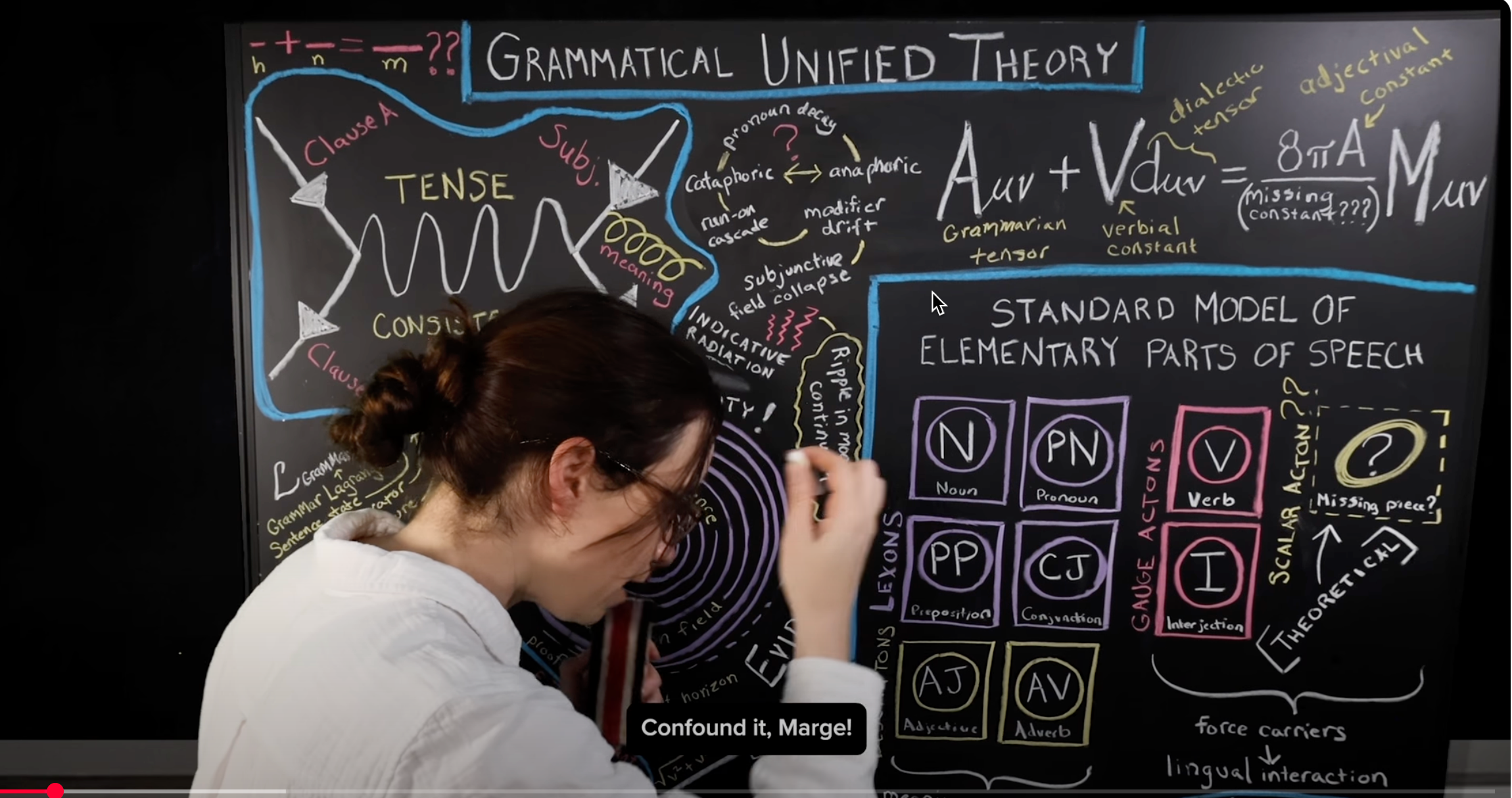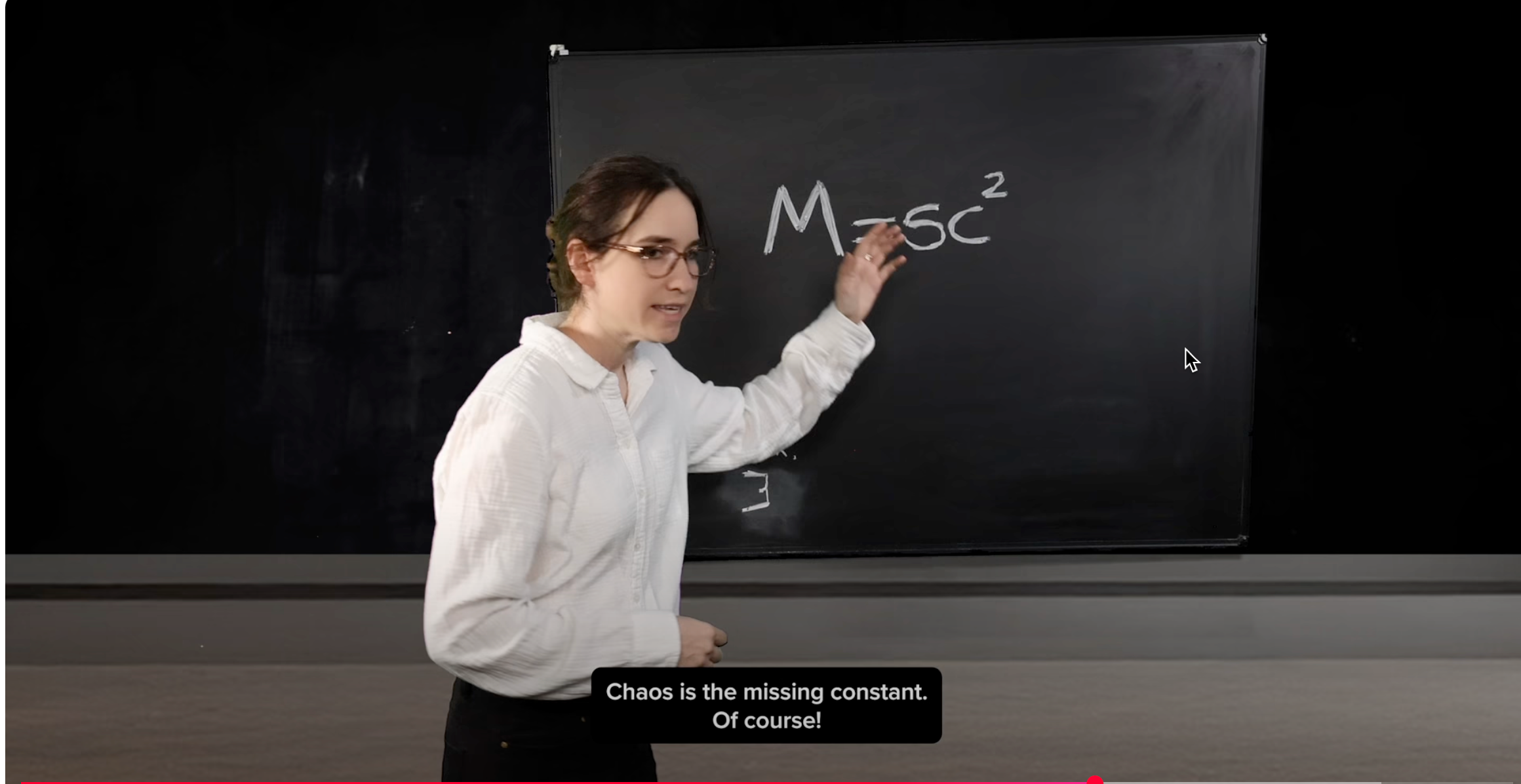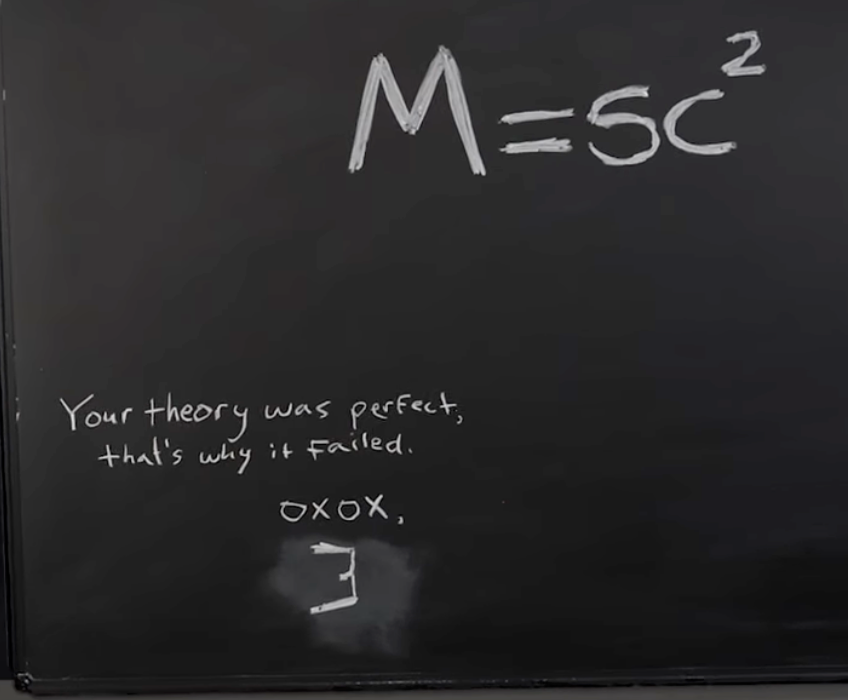Quantum semantics and syntactic relativity
« previous post | next post »
From Elle Cordova, yesterday:
Professor Grammarian's blackboard starts out this way:
Readers who have taken both a few linguistics courses and a few physics courses will get at least a few levels of the joke.
But her interaction with The Errorist yields a radically simplified theory:
Marge Inalia: Professor Grammarian! The chalkboard! Meaning equals Syntax times Chaos squared?
Professor: Chaos is the missing constant! Of course! Grammatical structure needs to harness the generative power of chaos to create meaning!
Marge Inalia: Hmm. It's elegant.
Professor: It's brilliant.
But then there's the note at the bottom:
Marge Inalia: Professor? Your subtitle…
Professor: Great Strunk! An error!
As far as I know, there are no linguistics professors who deify William Strunk Jr. — on the contrary.
But false gods aside, I'm intrigued by the idea that theoretical perfection causes failure.



Guy Plunkett said,
May 3, 2025 @ 3:53 pm
Elle Cordova is a treasure!
James said,
May 3, 2025 @ 4:01 pm
"I was there when the laws were written; I'll be there when the ink runs dry."
Poetry.
Francois Lang said,
May 3, 2025 @ 4:59 pm
Pure genius, as always!
JPL said,
May 3, 2025 @ 8:19 pm
The phrase "theory of quantum semantics" might pique the sense of possibilities of someone like Roger Penrose, or perhaps Anna Wierzbicka, but if this involves a search for "elementary particles" of thought as a fundamental reality of language usage and an acceptance of the image of atomism, then the theory is not likely to work out. Theories that are purely formal in nature might take this approach, since they accept as fundamental the metalogical "principle of compositionality", and such a theory could be "perfect" in a formal sense, but meaning and thought have to confront the chaos of the world and make sense of it. So the question is, "where does this property of "generativity", in the sense of a general idea that creates its own instances, come from? Where does "grammatical structure" (I assume this refers to the internal structure of the sentence) come from? Where does "meaning", whatever that is, and where does "thought" come from? And how have we all managed to make at least some sense of the "blooming buzzing confusion", as William James called the "chaos"? People like Carnap prized the notion of "exactness" in theories of language, but such exactness is only made possible not by restricting attention to the perceivable shapes of language, but by the fact that the formal language by itself is not capable of making any contact with the chaotic world at all, out there where languages are being used by speech communities. (I was just wondering if this delightful skit could be given some plausible linguistic interpretation, so the preceding was an attempt at doing that. WRT the obsession with "errors": The formal shape "to" connects to the wrong category for that context. The visible shape system is more adequate in that sense than the audible system of forms.)
Jerry Packard said,
May 5, 2025 @ 7:30 am
“… Where does "grammatical structure" (I assume this refers to the internal structure of the sentence) come from? …”
The field of Conversation Analysis might provide some parallels here. In CA, fixed syntactic structures are downplayed, with syntactic structure rather seen as a dynamic, emergent property created in real time. This appeals because it can be seen as a non-chaotic attempt at order in a universe of entropy. Grammatical structure can then be considered analogous to ‘position’ (particle) and its emergent creation as ‘momentum’ (wave).
David Marjanović said,
May 6, 2025 @ 5:24 pm
Obligatory: "e before i except after c" is not a spelling rule in English.